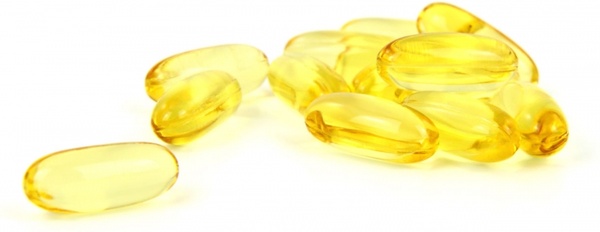Vitamin D is often called the sunshine vitamin. We absorb it through the skin from sunlight. Ironically, while vitamin D produced from sun exposure is readily and freely available – at least for part of the year in most parts of the world – people are surprisingly deficient in it.
Vitamin D plays an vital role that affects several functions in the body, and interest in the vitamin increases around this dank and dreary time of year.
You might have seen headlines about kids getting rickets from vitamin D deficiency or you might have read about Seasonal Affective Disorder (SAD). You might have heard it’s good for your bones or your finger nails. Whatever you have read, vitamin D has had quite a lot of press attention.
It’s reasonably well established that in the UK we’re too far away from the equator to get adequate vitamin D from the amount of sunlight we get here. Conversely, when I lived in Australia where there is plenty of sunshine, we were encouraged to cover up, wear sunscreen and UV protective clothes to protect ourselves from skin cancer.
So how do we do best for our bodies and what is vitamin D actually responsible for?
It’s important to always remember that vitamins and minerals work in pairs. We need both present in the body to get the job done. Vitamin D works hand-in-hand with calcium and magnesium. These are relatively well-known minerals and are important for bone density, joint health and muscle relaxation among many others.
Vitamin D needs to be present for the body to absorb the calcium and the magnesium and they also need to be present in our diet for all this to work.

Symptoms of calcium/magnesium deficiency can be; brittle bones, twitchy leg syndrome, headaches, migraines, aching muscles, slow muscle recovery from training, joint issues, growth issues in children and, of course, chocolate cravings.
Symptoms that can lead to vitamin D prescription include; depression, anxiety, acne, lethargy, tiredness, SAD, brittle bones, osteoarthritis or a family history of osteoarthritis…
I could go on but you get the idea.
Did you know…
– Vitamins and minerals work in pairs, you need the vitamin D and the calcium/magnesium in your diet (or through supplements) to maximise the benefit.
– Supplements are not all created equal. There are 86% of supplements on UK shop shelves that are not even manufactured by the company selling them to you. Ensure you get food state (preferably organic) and well-tested supplements. If you can’t find out if they meet these requirements then they probably don’t!
– You should supplement vitamin D3 and not just D2.
– Vitamin D is actually a relatively low-cost supplement to take and can have a great range of positive effects on both physical and mental wellbeing.
– You can supplement vitamin D though the darker winter months and then reduce or stop completely in the summer.
– You will only absorb vitamin D from meat and eggs IF the animal has been exposed to vitamin D themselves. So, if you buy caged eggs or non free range meat – it’s not likely to have any vitamin D in.

For me personally, taking a high-quality, organic and food state vitamin D supplement in the winter is a no-brainer.
If you’re concerned about your vitamin D levels ask your GP to check them for you via a simple blood test.
If you would like some advice about nutrition and supplements please contact us! We also stock high-quality supplements at the Lean Body Vision Studio, or we can order them for you.
